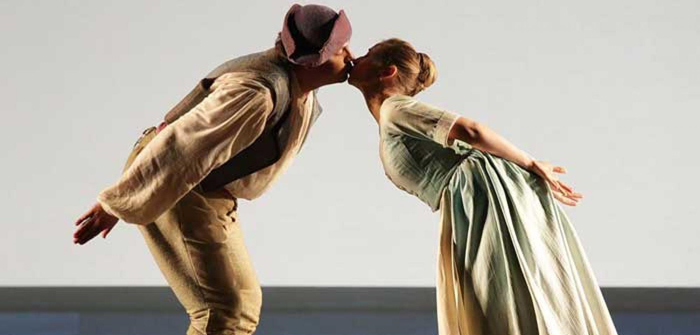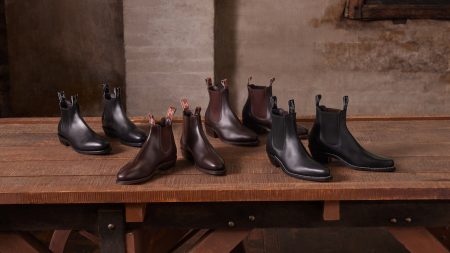This film presentation by Palace Nova Eastend Cinemas of Teatro alla Scala’s production of Mozart’s The Abduction from the Seraglio was captured live on 19 June 2017. In three acts, the screening runs close to three hours, which includes one short interval of 10 minutes that featured interviews with some of the production’s creatives, which are never to be missed – you gain such invaluable insights! It was sung in German with English subtitles.
I was so looking forward to seeing this screening, because it was a revival of the 1965 Salzburg production by the celebrated Italian director Giorgio Strehler. I have read and heard much about the magic of Strehler’s work with his evocative use of light (and absence of it!) and minimalist sets. Unfortunately, this screening did not capture any of that magic and I can only guess at what it must have been like to experience the actual production in the theatre.
I am not a cinematographer but it seems the camera work to film this production was just not sophisticated enough. There appeared to be too few cameras to capture the action, the colour balancing was awry, and the transitions from one camera to another – albeit few in number – were a distraction and did nothing to enhance the viewing experience.
A critic who was physically present at La Scala described the backdrop of the setting consisting of “…a dazzling bichrome skyscape, gradated from lower white to upper blue, across which the silhouette of a ship periodically glides.” The cinematography captured none of that, and Strehler’s intended use of shadow and dreaminess essentially came across as the cast being regularly in darkness. It was annoying, but it did force one to listen rather than to watch, and Mozart’s score is an absolute joy, especially in the studied hands of Zubin Mehta.
The opera’s story is a simple one: Konstanze (sung by Lenneke Ruiten), Blonde, her maid, (Sabine Devieilhe) and Pedrillo, her man-servant (Maximilian Schmitt) have been abducted and held against their will in the harem of the Turk, Pasha Selim. Belmonte, Konstanz’s lover, sung by Mauro Peter, arrives to rescue her but for a time is thwarted by Osmin, a henchman in the employ of Selim. Eventually Belmonte is successful and Selim, in a moment of compassion, agrees to release his captives.
Ruiten stood out both vocally and as an actress, and she excelled in the aria, Martern aller Arten, but Devieilhe possibly eclipsed her for vocal dexterity and purity of sound. Kehrer looked larger than life in his expansive costume and he successfully plumbed the depths of the bass register. His comic acting skills were well timed. Peter’s tenor voice was an object lesson in smooth phrasing and crisp diction. Schmitt rounded the cast out nicely and his Frisch zum Kampfe nicely demonstrated his rich baritone voice. The role of the pasha is only a speaking role, and it was adequately handled by Cornelius Obonya.
The La Scala chorus was at the top of their game in the closing Chorus of the Janissaries, which is perhaps the most hummable musical selection in the entire opera.
Reviewed by Kym Clayton
Twitter: @theatrekym
Rating out of 10: 6
This was the second of two screenings at the Adelaide Palace Nova Eastend Cinemas of The Abduction from the Seraglio as part of the Palace Opera & Ballet cinema season – exclusive at the Palace Nova Eastend Cinemas.






















